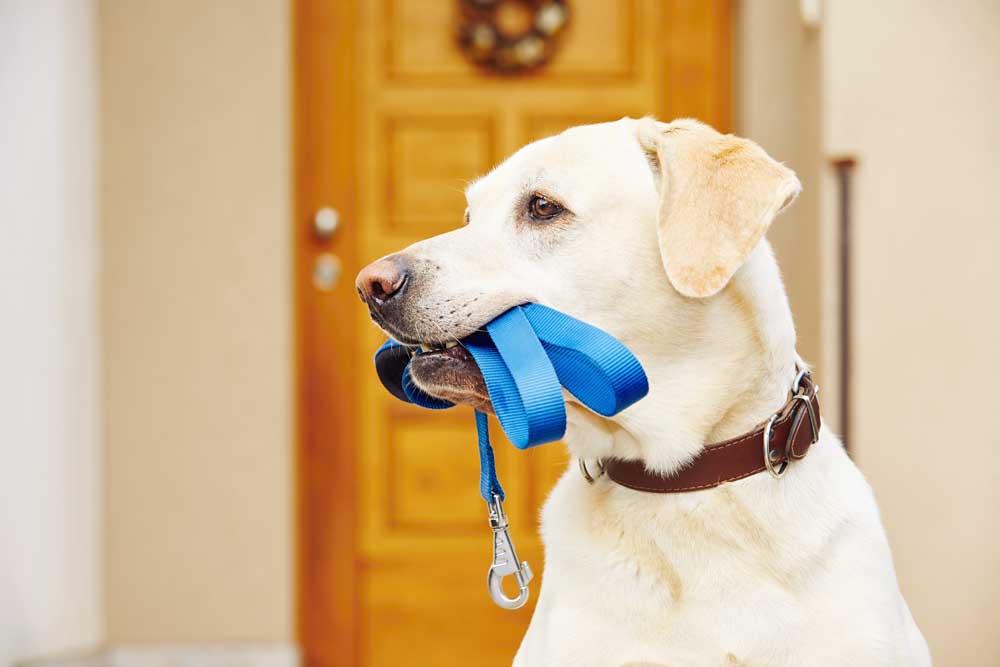Janet Stevens column: Dog owners, mind your manners
Published 12:00 am Friday, June 28, 2019

- (123RF)
Bend’s a community that loves its dogs. Lots of people own them — some say that roughly half the population here owns a dog. If that’s true, there are nearly 50,000 dogs living in Bend. Also if that’s true, I guess most of their owners are reasonably well-behaved where dog-owner etiquette is concerned. If they weren’t we’d be buried in poop, but more about that later.
Meanwhile, though Bend’s humans have tolerable pet manners, not everyone seems willing to use them, and, sometimes, they break the law when they don’t.
Take the use of leashes. City code requires we leash our dogs, always, unless they’re in our own yards or at an off-leash area at a park. The U.S. Forest Service, meanwhile, has areas where leashes are required, including campgrounds, and others where dogs can run free. The Deschutes National Forest website has more information.
There are good reasons for leashing your dog. They frighten some people, and they can be downright hazardous to small children and the elderly. They may also run into problems with other leashed or unleashed dogs.
Good pet owner manners and safety require those walking dogs, even leashed ones, to make sure they’re aware of others. Thus, you shouldn’t let your dog greet a stranger or a stranger’s dog unless the stranger says it’s OK, and you should take extra care if children wish to greet a dog. Kids can be unpredictable around animals, and that, in turn, can frighten the animals, sometimes with unfortunate results.
Nor are dogs welcome everywhere. Oregon law bars dogs from grocery stores and restaurants, unless they’re service animals. That means guide dogs, hearing dogs, psychiatric service animals and seizure and allergen alert animals, all of which have been individually trained to perform tasks that benefit a disabled owner. It doesn’t mean emotional support or other therapy animals.
Then there’s poop.
Poop is the part of dog ownership that owners dislike most, no doubt. But it’s the stuff that stinks, and owners have a responsibility to deal with it.
No one likes to plan an afternoon at a city park or on a mountain trail or just about anywhere else only to discover that some folks either don’t pick up after their dogs, or, if they do pick up, don’t carry the bag of excrement with them. Perhaps they expect to retrieve what they’ve left on their way back, but I’m pretty sure that for some, the simple act of bagging feels like enough.
It isn’t. If your dog is going to poop in public, it’s your responsibility not only to bag the stuff but to carry it with you until it can be properly disposed of in a garbage container (a public one or your own, not the neighbor’s).
It’s also not enough to pick up only poop that’s deposited on a sidewalk or lawn. Ignoring poop deposited off trail assumes that nothing but dogs will ever go that way, so a bit of excrement here and there is no problem. That’s simply not true.
Dog excrement, or human waste, for that matter, doesn’t belong in the wild and actually does damage by being there, according to NEWStat, a blog of the American Animal Hospital Association. Dogs’ diets are a far cry from the diets of bears and other wild animals, richer in phosphorus and nitrogen, among other things. When the nutrients build up in a wild setting, they can cause algae blooms and other problems.
Good dog owner manners go a long way to making dogs acceptable to others. Bad manners can have the opposite effect, as they have in Breckenridge, Colorado, where last year city officials considered, but apparently never began, collecting samples of dog feces left inappropriately in public places so offending dogs could be tracked through the DNA deposited therein. Perhaps the threat of DNA tracking was enough to solve that stinky problem.
— Janet Stevens is deputy editor of The Bulletin. Contact: 541-617-7821, jstevens@bendbulletin.com






